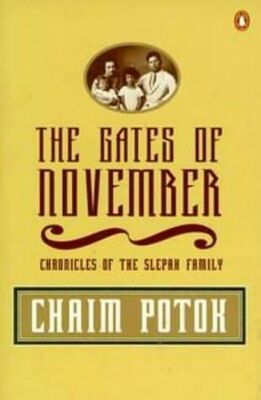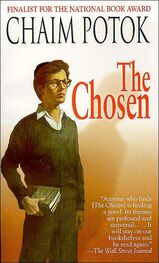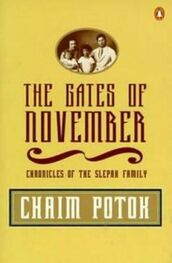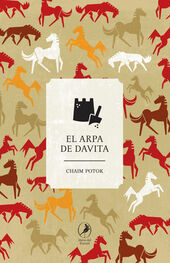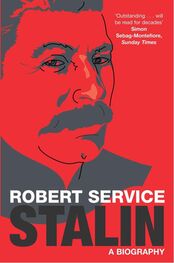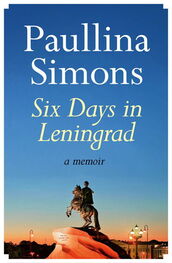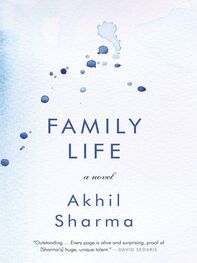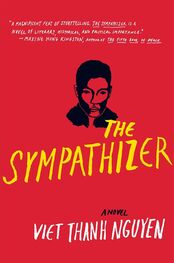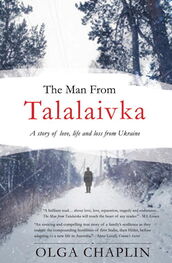Gitelman, Zvi Y. A Century of Ambivalence. New York: Yivo, 1988.
____________________. Jewish Nationality and Soviet Politics. Princeton, N.J.: Princeton University Press, 1972.
Goldberg, Lea. Russian Literature in the Nineteenth Century. Jerusalem: Magnes Press, Hebrew University, 1976.
Goralski, Robert. World War II Almanac. New York: Putnam, 1981.
Gorky, Maxim. Untimely Thoughts. New Haven, Conn.: Yale University Press, 1995.
Goulden, Joseph C. The Best Years: 1945-1950. New York: Atheneum, 1976.
Hansson, Carola, and Karin Liden. Moscow Women. New York: Pantheon Books, 1983.
Heaps, Willard A. The Story of Ellis Island. New York: Seabury Press, 1967.
Heller, Mikhail, and Aleksandr Nekrich. Utopia in Power. New York: Summit Books, 1986.
Hingley, Ronald. Russian Writers and Soviet Society 1917-1978. London: Weidenfeld & Nicolson, 1979.
Hook, Brian, ed. The Cambridge Encyclopedia of China. New York: Cambridge University Press, 1982.
Howe, Irving. Leon Trotsky. New York: Viking, 1978.
____________________. World of Our Fathers. New York: Harcourt, Brace, Jovanovich, 1976.
Israel, Gerard. The Jews in Russia. New York: St. Martin’s Press, 1975.
Ilyin, Olega. White Road. New York: Holt, Rinehart, Winston, 1984.
Kennan, George. Siberia and the Exile System. New York: Century Co., 1891. 2 vols.
Klehr, Harvey. The Heyday of American Communism. New York: Basic Books, 1984.
Klier, John Doyle. Imperial Russia ’s Jewish Question, 1855-1881. Cambridge, England: Cambridge University Press, 1995.
Knight, Amy. Beria. Princeton, N.J.: Princeton University Press, 1993.
Kochan, Lionel. The Jews in Soviet Russia Since 1917. New York: Oxford University Press, 1972.
Koenker, Diane. Moscow Workers and the 1917 Revolution. Princeton, N.J.: Princeton University Press, 1981.
Krasno, Rena. Strangers Always. Berkeley, Calif.: Pacific View Press, 1992.
Kublin, Hyman, ed. Studies of the Chinese Jews. New York: Paragon, 1971.
Laqueur, Walter. The Dream That Failed. New York: Oxford University Press, 1994.
____________________. “The Long Goodbye.” The New Republic (April 11, 1994).
____________________. The Long Road to Freedom. New York: Collier Books, 1989.
____________________. Stalin. New York: Charles Scribner’s Sons, 1990.
Lasch, Christopher. The New Radicalism in America, 1889-1963. New York: Alfred A. Knopf, 1965.
Lederhendler, Eli. The Road to Modern Jewish Politics. New York: Oxford University Press, 1989.
Levin, Nora. The Jews in the Soviet Union Since 1917. New York: New York University Press, 1990. 2 vols.
Levitas, Isaac. The Jewish Community in Russia, 1844-1917. Jerusalem: Posner and Sons, 1981.
Lewin, Moshe. The Making of the Soviet System. New York: Pantheon Books, 1985.
Lewis, Jonathan, and Philip Whitehead. Stalin: A Time for Judgment. New York: Pantheon, 1990.
Lih, Larst; Oleg V. Naumon, and Oleg V. Khlevniuk, eds. Stalin’s Letters to Molotov. New Haven, Conn.: Yale University Press, 1995.
Lord, Walter. The Good Years. New York: Harper, 1960.
Lourie, Richard. Russia Speaks. New York: Edward Burlingame Books, 1991.
Lozansky, Edward D., ed. Andrei Sakharov and Peace. New York: Avon Books, 1985.
Lutz, Jessie Gregory. China and the Christian Colleges, 1850-1950. Ithaca, N.Y.: Cornell University Press, 1971.
Malia, Martin. The Soviet Tragedy: A History of Socialism in Russia, 1917-1991. New York: Free Press, 1994.
McCullough, David W. Brooklyn-and How It Got That Way. Photographs by Jim Kalett. New York: Dial Press, 1983.
McNeal, Robert H. Stalin: Man and Ruler. New York: New York University Press, 1990.
Medvedev, Roy A. Let History Judge. New York: Alfred A. Knopf, 1971.
____________________. On Soviet Dissent. New York: Columbia University Press, 1985.
Mehnert, Klaus. The Russians & Their Favorite Books. Stanford, Calif.: Hoover Institution Press, 1983.
Milner-Guland, Robin, and Nikolai Dejevsky. Cultural Atlas of Russia and the Soviet Union. New York: Facts on File, 1989.
Moore, Frederick F. Siberia Today. New York: D. Appleton and Company, 1919.
Moynahan, Brian, and Yevgeny Yevtushenko. The Russian Century: A Photographic History of Russia’s 100 Years. New York: Random House, 1994.
Nakhimovsky, Alice Stone. Russian-Jewish Literature and Identity. Baltimore: Johns Hopkins University Press, 1992.
Nedava, Joseph. Trotsky and the Jews. Philadelphia: Jewish Publication Society, 1978.
Pethybridge, Roger, ed. Witness to the Russian Revolution. Secaucus, N.J.: Citadel Press, 1964.
Pinkus, Benjamin. The Soviet Government and the Jews 1948-1967. Cambridge, England: Cambridge University Press, 1984.
Pipes, Richard. Russia Under the Bolshevik Regime. New York: Alfred A. Knopf, 1993.
____________________. Russia Under the Old Regime. New York: Charles Scribner’s Sons, 1974.
Powell, David E. Anti-Religious Propaganda in the Soviet Union. Cambridge, Mass.: MIT Press, 1975.
Prital, David, ed. In Search of Self The Soviet Jewish Intelligentsia and the Exodus. Jerusalem: Mount Scopus Publications, 1983.
Pye, Lucian W. Asian Power and Politics. Cambridge, Mass.: Harvard University Press, 1985.
Radzinsky, Edvard. The Last Tsar. New York: Doubleday, 1992.
Raeff, Marc. Understanding Imperial Russia. New York: Columbia University Press, 1984.
Rapoport, Louis. Stalin’s War Against the Jews. New York: Free Press, 1990.
Redlich, Shimon. Propaganda and Nationalism in Wartime Russia. New York: East European Quarterly, 1982.
Remnick, David. Lenin’s Tomb. New York: Random House, 1993.
Remnick, David. “The Exile Returns.” The New Yorker (February 14, 1994).
Riasonovsky, Nicholas, V. A History of Russia. New York: Oxford University Press, 1984.
Riasonovsky, Nicholas, V. The Image of Peter the Great in Russian History and Thought. New York: Oxford University Press, 1985.
Ro’i, Yaacov, and Avi Becker, eds. Jewish Culture and Identity in the Soviet Union. New York: New York University Press, 1991.
Rubenstein, Joshua. Soviet Dissidents: Their Struggle for Human Rights. Boston: Beacon Press, 1985.
Sablinsky, Walter. The Road to Bloody Sunday. Princeton, N.J.: Princeton University Press, 1976.
Sakharov, Andrei. Memoirs. New York: Alfred A. Knopf, 1990.
Salisbury, Harrison E. Black Night, White Snow: Russia’s Revolutions, 1905-1978. New York: Doubleday, 1978.
____________________. China: One Hundred Years of Revolution. New York: Holt, Rinehart & Winston, 1983.
____________________. The New Emperors. Boston: Little, Brown, 1992.
Sarna, Jonathan D. “The Myth of No Return: Jewish Return Migration to Eastern Europe, 1881-1914.” American Jewish History (December 1981).
Schapiro, Leonard. The Communist Party of the Soviet Union. London: Methuen, 1970.
____________________. The Russian Revolutions of 1917. New York: Basic Books, 1984.
____________________. Russian Studies, ed. Ellen Dahrendorf. New York: Viking, 1986.
Schrecker, Ellen W. No Ivory Tower. New York: Oxford University Press, 1986.
Schroeter, Leonard. The Last Exodus. Seattle: University of Washington Press, 1979.
Schwarz, Solomon M., The Jews in the Soviet Union. Syracuse, N.Y.: Syracuse University Press, 1951.
Serge, Victor. Memoirs of a Revolutionary. London: Writers and Readers, 1963.
Shcharansky, Anatoly. Fear No Evil. New York: Random House, 1988.
Shindler, Colin. Exit Visas. London: Bachman and Turner, 1978.
Shipler, David K. “Dateline USSR: On the Human Rights Track.” Foreign Policy, no. 75 (Summer 1989).
Shultz, George P. Turmoil and Triumph. New York: Charles Scribner’s Sons, 1993.
Simon, Gerhard. Church, State and Opposition in the U.S.S.R. Berkeley and Los Angeles: University of California Press, 1974.
Читать дальше